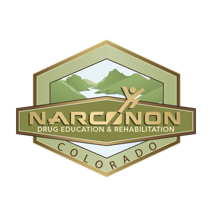Generation of Orphans Is Being Created by the Addiction Epidemic

If you pay attention to the news or are apart of the addiction recovery community, chances are you hear about something related to the addiction crisis every day. Sadly, drug overdose deaths have become common occurrences. We hear about the thousands of people who are dying from drugs all the time but how often do we stop to think about the children who are suffering from all of this through no fault of their own?
“The record high number of overdose deaths
is creating a generation of children
who are growing up without their parents.”
According to the US Department of Health and Human Services, there were 42,000 deaths attributed to opioid overdose in 2016. These are some of the highest numbers the United States has ever seen. When you take into consideration how many of these people who died had children, you begin to understand how overwhelming this problem has become.
More and more children across the United States are being raised by their grandparents while many others are being placed in the foster care system. The record high number of overdose deaths is creating a generation of children who are growing up without their parents.
Statistics taken from the National Council for Adoption show that the current addiction crisis is having a significant impact on the number of children in the United States who are entering foster care. The amount of children in foster care has been on the rise every year since 2012. In 2016 the numbers reached up to 437,465. In that same year, the number of children who entered the foster care system due to being removed from their home because of parental drug abuse was 92,107.
Many states are having difficulty keeping up with the heavy caseloads and are requesting bigger budgets in order to keep afloat. Thankfully children who have family members that are able to take them in do not have to enter the foster care system. As of 2017, there were more than 2.5 million grandparents in the United States who were helping take care of their grandchildren, many of whom did not have adequate resources to do so.
Perhaps the worst things a parent can experience is having their child pass away. When it happens from something like addiction it makes the loss even more difficult to bear. Now imagine losing a child to addiction and then having to explain to your grandchild why their mom or dad won’t be coming home. This is an extremely painful situation that far too many people are having to face every day because of the high rates of addiction.
“Losing a parent as a child
impacts a person for the rest of their life.”
Families that take care of their grandchildren need to have more resources made available in order to be able to do so. Many grandparents end up having to go back to work or don’t have enough income to take care of their grandchildren. Allocating more funding from social services towards giving grandparents a hand up to help them get on their feet during the initial transition would help lessen their burden.
Another aspect of this issue to take into consideration is that children who have lost their parents to addiction are going to need help as well. Losing a parent at any age is a painful experience, but losing a parent as a child impacts a person for the rest of their life. Grief is a difficult thing for children to go through and comprehend. By providing professional support children will be better equipped to deal with the loss of their parents.
Overall the high rates of addiction in this country are having an extreme impact on several areas of society. This is a complicated problem that requires several different answers in order for it to be solved. Making addiction treatment more accessible to more people is only the beginning. Only time will tell how all of this will impact future generations but in the meantime, it is important that we all start working together in order to find more solutions.
Resources:
- https://www.adoptioncouncil.org/blog/2018/01/stats-show-our-nations-foster-care-system-is-in-trouble
- https://www.hhs.gov/opioids/about-the-epidemic/index.html#response
- https://www.staradvertiser.com/2018/12/25/live-well/bypassed-generation-grandparents-raising-children-born-to-addicted-parents/
- https://triblive.com/local/regional/14177820-74/as-opioid-crisis-creates-orphans-grandparents-take-on-parenthood-again-often-with
- http://www.transforminghealth.org/stories/2018/01/as-overdose-deaths-rise-thousands-of-children-will-never-know-their-parents.php
- https://brandongaille.com/21-statistics-on-grandparents-raising-grandchildren/
- https://www.pbs.org/newshour/nation/more-grandparents-raising-their-grandchildren


